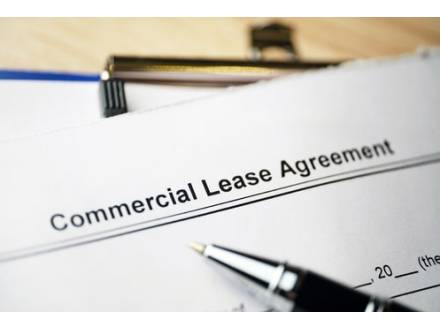How to Handle a Commercial Lease Violation
 Commercial lease violations can be a significant headache for both landlords and tenants. Whether you are dealing with missed rent payments, unauthorized property alterations, or breaches of use restrictions, knowing how to handle these situations is crucial. An Illinois lawyer can walk you through the essential steps to address commercial lease violations effectively and protect your interests. To achieve the best potential outcome, it is beneficial to never try to navigate this type of case by yourself.
Commercial lease violations can be a significant headache for both landlords and tenants. Whether you are dealing with missed rent payments, unauthorized property alterations, or breaches of use restrictions, knowing how to handle these situations is crucial. An Illinois lawyer can walk you through the essential steps to address commercial lease violations effectively and protect your interests. To achieve the best potential outcome, it is beneficial to never try to navigate this type of case by yourself.
Common Commercial Lease Violations
Before getting into the resolution process, it is helpful to recognize some frequent lease violations:
- Non-payment or late payment of rent
- Unauthorized subletting or assignment
- Improper use of the premises
- Failure to maintain the property
- Violating occupancy limits
- Breaching exclusivity clauses
Identifying the violation is the first step in determining the appropriate course of action.
Steps to Address a Commercial Lease Violation
When faced with a lease violation, follow these steps to protect your rights and work towards a resolution:
- Familiarize yourself with the specific terms that have been violated and any remedies outlined in the contract.
- Gather evidence such as photographs, witness statements, or financial records to support your claim.
- Send a written notice detailing the violation and requesting compliance within a reasonable timeframe.
- Mediation can be a cost-effective way to resolve disputes without litigation if direct communication fails.
Remember that the goal is to resolve the issue efficiently. You should also work to maintain a professional relationship as best you can.
Clauses to Include in Your Commercial Lease Agreement
To avoid issues in the future and protect yourself, consider incorporating these essential clauses in your commercial lease agreement:
- Clearly define permitted and prohibited uses of the property to prevent misunderstandings.
- Specify which party is responsible for various aspects of property upkeep.
- Outline what constitutes a default and the consequences, including cure periods and available remedies.
- Include provisions for mediation or arbitration to resolve conflicts without costly litigation.
- Clearly state the conditions for lease renewal or early termination to avoid future disagreements.
- Define the process and restrictions for transferring lease rights to third parties.
- Specify the types and amounts of insurance each party must maintain throughout the lease term.
- Require both parties to adhere to all applicable local, state, and federal regulations.
Reach Out to a Chicago, IL Commercial Litigation Lawyer
Are you dealing with a commercial lease violation in Illinois? Depending on the specifics, this situation can get tricky if not handled correctly. Call Teller, Levit & Silvertrust, P.C. at 312-922-3030 to schedule a private consultation with a Cook County, IL commercial litigation attorney.






